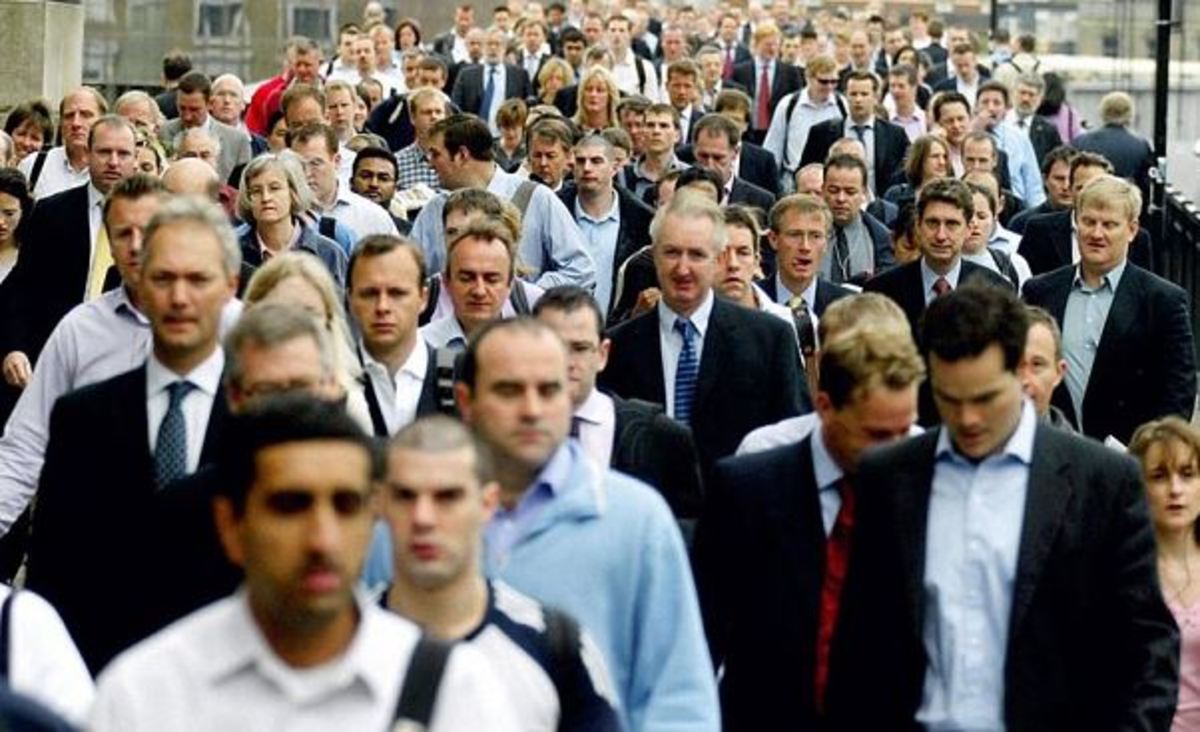Why Can't We Afford to Buy Our Food and Pay Rent?
Where Did the Problems Begin?
Let’s start at the very beginning. This planet started out as a cosmic experiment, born in the violence of volcanoes, earthquakes, floods and severe weather. No wonder it begat life forms prone to similar bouts of violence—and sadly, the need for one species to hunt down, kill and eat another to insure its own survival.
By the time humans arrived on the scene, this pattern was well established, and if humans are good at anything, it is copying observed behavior. So, like the wild animals they saw around them, they too began to hunt and kill. And like their wild counterparts, or competitors, as the other animals had now become, humans also observed territorial behavior, and we copied that, as well.
Next thing you know, we were waging battles of our own against other humans over territorial rights. As much as we like to think we have become evolved and civilized, underneath that pretense of civilization lies the same old animal instincts, ready to betray our polished veneer.
Leap Ahead to Modern Times
The current worldwide economic mess and accompanying civil unrest can be blamed squarely on these ancient habits. Wars are fought over territorial issues, or philosophical and religious differences. That is one fault we cannot claim to have copied from the other animals on the planet. I sincerely doubt that dogs or cats have arguments over religion or philosophical concepts. We humans invented that all by ourselves.
That is the basic flaw in the human soul; the endless desire to be “right,” and to be willing to eliminate those who disagree. Unfortunately, might is not equal to right. It is only a win of superior force, or a stronger will to be merciless toward those less able to defend themselves.
In many cases, it is those who have been conquered who were probably closer to being “right” than the despots who overran their societies. But, just like a schoolyard bully, the actual motivation behind the despot is fear. Fear of ridicule; fear of things or people that are "different;" fear of “losing;” fear of not having control.
It's A Control Issue
Ah, there’s the crux of the matter: control. Bully and despot are but two names for the same thing. The despot is the bully grown to adulthood. Sadly, they are adult in years and physical characteristics only; their mental age has not progressed beyond that of a selfish 2-year-old. Their murderous outbursts nothing more than an exaggerated extension of that toddler’s temper tantrum.
They want to control their lives to the extent of preventing any type of outside interference or unforeseen circumstance from affecting their lives. To them, this means controlling the lives of everyone else as well. Too bad they don’t understand: the universe doesn't work that way.
Wars Ruin More Than Lives
If we stick to the 20th and 21st centuries only, the major conflicts were of course World Wars I and II. Then followed the Korean War, (which was never a declared war at all—but referred to as a “police action”), and then Vietnam, and the assorted Middle East conflicts, Gulf War, Desert Storm, etc.
There is much propaganda put forth by Governments, or The Powers That Be (TPTB), to the effect that ‘war is good for the economy.’ Nothing is further from the truth. Wars have a devastating effect on national economy, no matter the nation in question.
If it is the losing nation, there is the obvious cost of all the destruction and necessary rebuilding which must be attempted upon the already weak economy brought about by trying to come out on the winning instead of the losing side. (The ugly side of ‘trying to keep up with the Joneses!)
If it is the winning nation, all those jobs in manufacturing and production are lost, because they were jobs geared to helping the military effort in the war. With the war over, there is no further need for that production, so those people become unemployed.
It is fairly obvious to see through the lens of past history how this has worked. World War I ended in 1918. Just 11 years later in 1929, there was the stock market crash which was the beginning of “The Great Depression.” You might think that the events were not related due to that 11-year separation, but in fact, there was a connection. That connection was those lost jobs. Not only did the people who had remained at home to fill jobs related to military production find themselves out of work; so did the returning soldiers.
Soup Kitchens Were Common After the Great Depression

The Past Becomes the Present
People began to struggle; financial firms allowed borrowing on margin (that is, essentially giving loans) to allow folks to invest in the stock market when they did not actually have enough money to do so. (Sound familiar?) They were all speculating on massive and quick future growth in the industrial sector.
As we now know, that never happened, the market crashed in a big way. People could not repay their margins; they lost jobs if they had any; they lost homes and became homeless. In those days, losing your home did not necessarily mean you could not pay your mortgage.
The current “American Dream” of every family owning their own single-family home was not common then. Losing your home meant you could not afford to pay rent. They could not afford even food—hence the historic photos we often see of long lines of people, including entire families, standing in line at soup kitchens.
This era pre-dated the concept of government assistance programs such as unemployment benefits, welfare or food stamps. (I simply offer that information as a fact of the times; it is not my intention to discuss the relative merit or lack thereof with such programs.)
The Present Is Not the Past
The main difference being--the politics and politicians. Back in the first depression, there was created the WPA, or Works Progress Administration. This was a government-funded make-work program. It was not welfare, it was necessary work in building and repairing infrastructure, of which the San Francisco-Oakland Bay Bridge is a prime example.
The building of that bridge took over six percent of the entire steel production of this country, put people back to work, and lifted us, almost single-handedly, out of that depression.
Today, the eastern span of that same bridge is being rebuilt following a partial retrofit after the 1989 Loma Prieta Earthquake. People are still struggling, out of work, and why?
Because this time, greedy corporations are having the steel manufactured over in China, and shipped here. Hence, no steel workers are being employed. The overseas steel is inferior in quality, but the selfish CEO's do not care. All they see is that for what it costs to have it manufactured at home, they can both pay for the product and the shipping for less.
Something is very wrong with this picture. Do you blame people for taking part in the "occupy" movement? I don't. This time, there is no WPA bailout for the people. The bailout money went to those who caused the current problems!
Politicians have always had their own agendas, but things have gotten radically worse over the decades. A revolution is in order--at the polling place! This is the only measure to save a livable future for our children and grandchildren.
© 2012 Liz Elias





